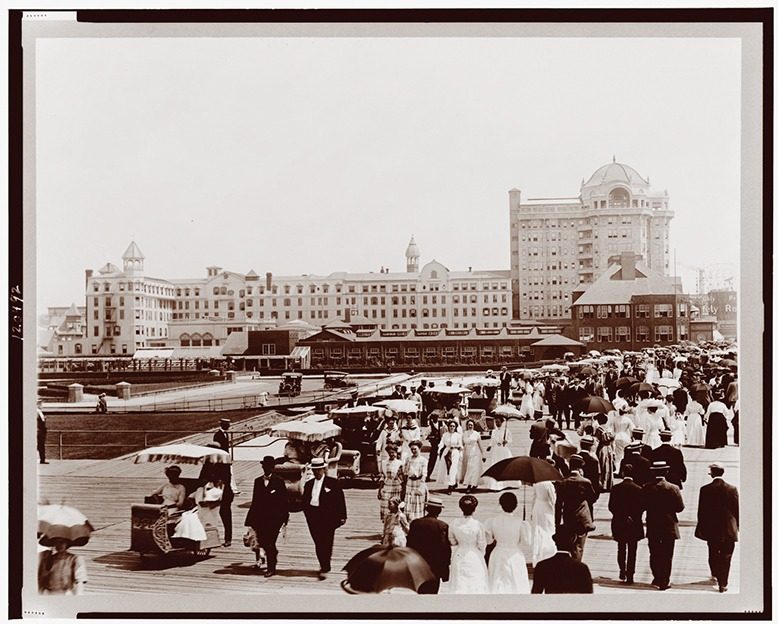
The sands of time have often shifted in Atlantic City, but for many generations, the Boardwalk has been a constant. The iconic walkway marks its 150th anniversary on June 26.
Certainly, the Boardwalk has always been a presence for longtime residents like Kevin Nelson, who grew up in Atlantic City.
“We would go bike riding down the Boardwalk in the morning,” says Nelson. “Later in the day, we’d go on the beach.”
The Boardwalk—America’s first—had humble beginnings. A city railroad conductor and a hotel owner came up with the idea of a raised wooden walkway to keep sand out of hotel lobbies. They pitched the idea to the city council. Five thousand dollars later, the original 10-foot-wide, mile-long walk was a reality.
 A rebuild 10 years later with steel pilings established the Boardwalk as a permanent structure. It was fortified after a hurricane battered the boards in 1889. A 1916 expansion left it looking much like today’s 4-mile-long Boardwalk. Tourists flooded into Atlantic City to enjoy the fresh air on the Boardwalk and watch the famous diving-horse act on the Steel Pier, or attend the circus and see a man turn into an ape right before their eyes.
A rebuild 10 years later with steel pilings established the Boardwalk as a permanent structure. It was fortified after a hurricane battered the boards in 1889. A 1916 expansion left it looking much like today’s 4-mile-long Boardwalk. Tourists flooded into Atlantic City to enjoy the fresh air on the Boardwalk and watch the famous diving-horse act on the Steel Pier, or attend the circus and see a man turn into an ape right before their eyes.
“Everybody would come from Philadelphia and New York, and the town would be packed,” says Nelson, now 59 and a floor-person at Bally’s Hotel and Casino.
[RELATED: 29 Moments That Shaped New Jersey]
The Miss America pageant found its home in the city. Iconic stars, including Louis Armstrong, Frank Sinatra, Neil Diamond and the Supremes, graced the Steel Pier’s music venues. But time took its toll. As automobile and air travel increased in the decades after World War II, Atlantic City tourism declined, dragging down the local economy.
“Once you got out of high school, you had to leave town to get work,” says Nelson. “The only thing they had were hotels. Some of them were deteriorating and closing up and becoming a ghost town. The city was wearing down.”
In 1978, casino gambling came to Atlantic City. The casinos turned around the city’s economy and brought people back to the boards. But the city’s saga was not over. The recession of 2008 hit hard—as did rising competition from casinos in neighboring states. Six casinos closed from 2011–2016.
Today, the casino count is up to nine, but investors rolling the dice on Atlantic City could not foresee Covid-19. (On June 22, Gov. Phil Murphy announced that Atlantic City’s casinos would reopen on July 2 with 25 percent capacity limits.) The Boardwalk, which remained open throughout the pandemic, is still attracting a crowd.
“I guess everybody is just cooped up in the house and wants to get out,” says Nelson, who still rides his bike on the Boardwalk.
It’s reminiscent of the early days of the Boardwalk. No high stakes. No diving horses. Just people plying the boards for fresh air and a view of the ocean.



